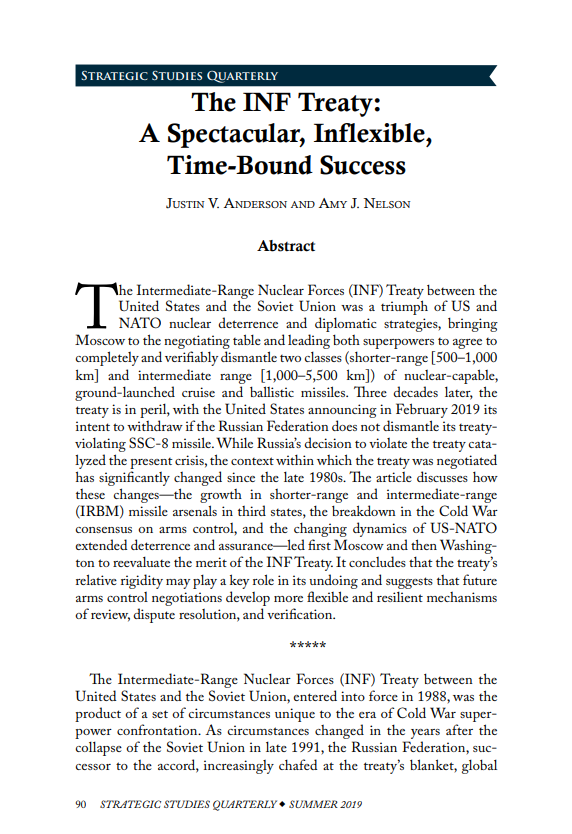
The Intermediate-Range Nuclear Forces (INF) Treaty between the United States and the Soviet Union was a triumph of US and NATO nuclear deterrence and diplomatic strategies, bringing Moscow to the negotiating table and leading both superpowers to agree to completely and verifiably dismantle two classes of nuclear-capable, ground-launched cruise missile and ballistic missiles. While Russia's decision to violate the treaty catalyzed the present crisis, the context within which the treaty was negotiated has significantly changed since the late 1980s. This article discusses how these changes--the growth in shorter-range and intermediate-range (IRBM) missile arsenals in third states, the breakdown in the Cold War consensus on arms control, and the changing dynamics of US-NATO extended deterrence and assurance--led first Moscow and then Washington to reevaluate the merit of the INF Treaty. It concludes that the treaty's relative rigidity may play a key role in its undoing and suggests that future arms control negotiations develop more flexible and resilient mechanisms of review, dispute resolution, and verification. READ MORE>>>